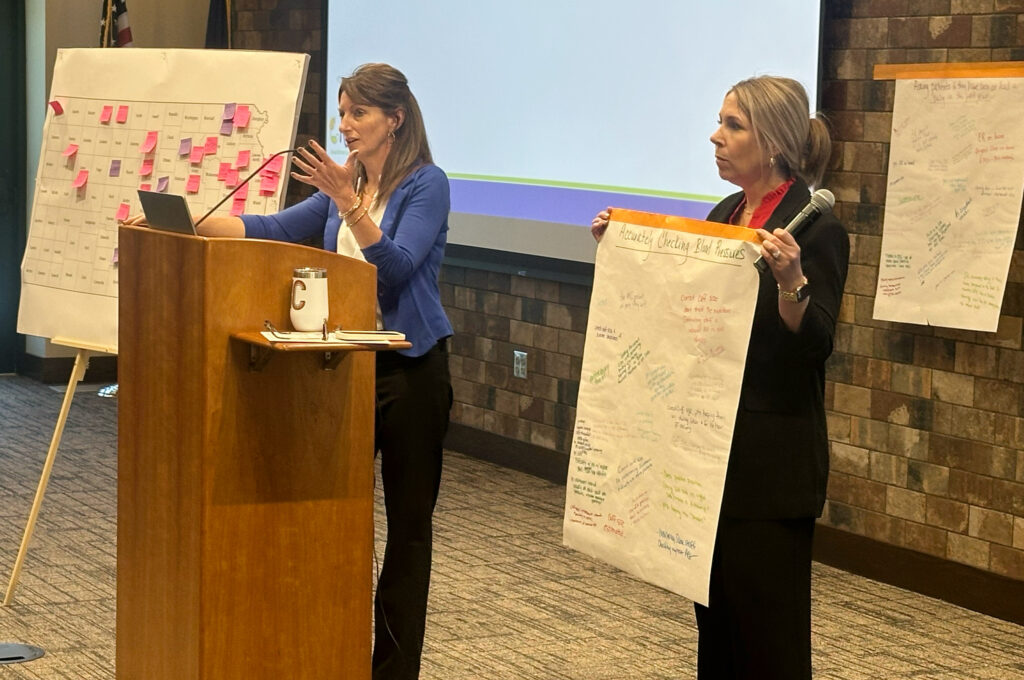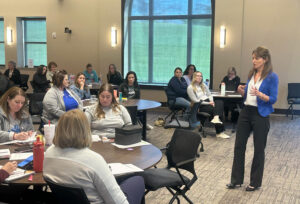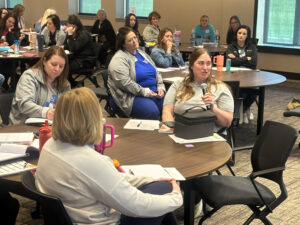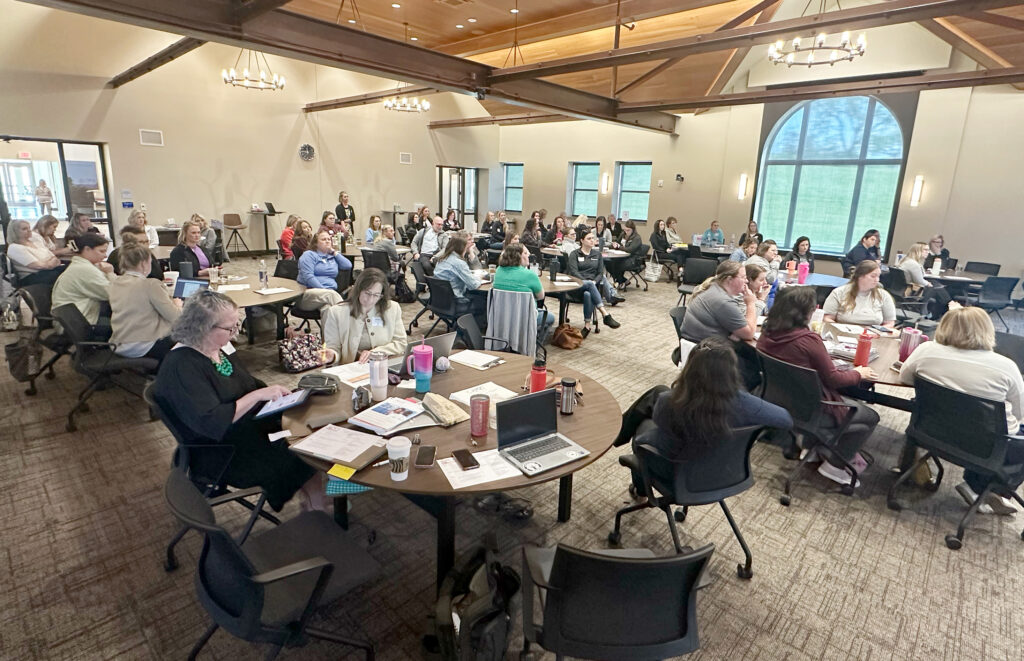
The Kansas Perinatal Quality Collaborative (KPQC) held its annual spring conference on April 23 at the Sunflower Nonprofit Center, where staff from hospitals and clinics across the state joined public health leaders to begin work on the KPQC’s latest initiative: to address the critical issue of severe maternal hypertension in Kansas
The KPQC, in partnership with the Kansas Department of Health and Environment (KDHE) brings together clinical teams and public health leaders to develop strategies for improving the quality of care and health outcomes for mothers and babies across the state.
 The spring conference was a workday for staff from the 39 birth facilities and 11 non-birth facilities that have enrolled in KPQC’s Severe Hypertension in Pregnancy Safety Bundle, which kicked off in January. The goal is to educate providers – whether they work in labor and delivery units or in emergency rooms or family practice clinics – and establish protocols on how to respond to severe maternal hypertension, said Jill Nelson, KPQC coordinator.
The spring conference was a workday for staff from the 39 birth facilities and 11 non-birth facilities that have enrolled in KPQC’s Severe Hypertension in Pregnancy Safety Bundle, which kicked off in January. The goal is to educate providers – whether they work in labor and delivery units or in emergency rooms or family practice clinics – and establish protocols on how to respond to severe maternal hypertension, said Jill Nelson, KPQC coordinator.
“We want them to be prepared and to know what the standard protocols are by the recognized organizations, like the American College of Obstetricians and Gynecologists, so that they’re following what we know is the best practice and standard of care that needs to be occurring in facilities across the state,” Nelson said.
From 2016 to 2022, cardiovascular disease, including hypertensive disorders, was the leading cause of pregnancy-related deaths in Kansas. According to the 2022 Natality Report, preeclampsia (a potentially dangerous and fatal pregnancy complication characterized by high blood pressure) ranked as the second-leading reported medical risk factor for severe maternal morbidity in Kansas. Additionally, maternal hypertensive disorders significantly increase the risk of preterm delivery.
 Early intervention is key in addressing life-threatening complications that occur during pregnancy, labor and delivery, Nelson said.
Early intervention is key in addressing life-threatening complications that occur during pregnancy, labor and delivery, Nelson said.
“We’ve seen that severe maternal morbidity has been increasing in past years.” she said. “We want to intervene before it becomes a severe maternal morbidity.”
According to the KPQC, the collaborative “strives to engage and empower patients, their families and support system, providers, and Kansas communities to intentionally improve maternal and neonatal health outcomes with our collective, inspired effort.”
As we think about our mission to serve as a catalyst for improving the health of all Kansans, we applaud KPQC’s work to address severe hypertension in pregnancy, which is critical to improving health outcomes for both mothers and infants in Kansas.


